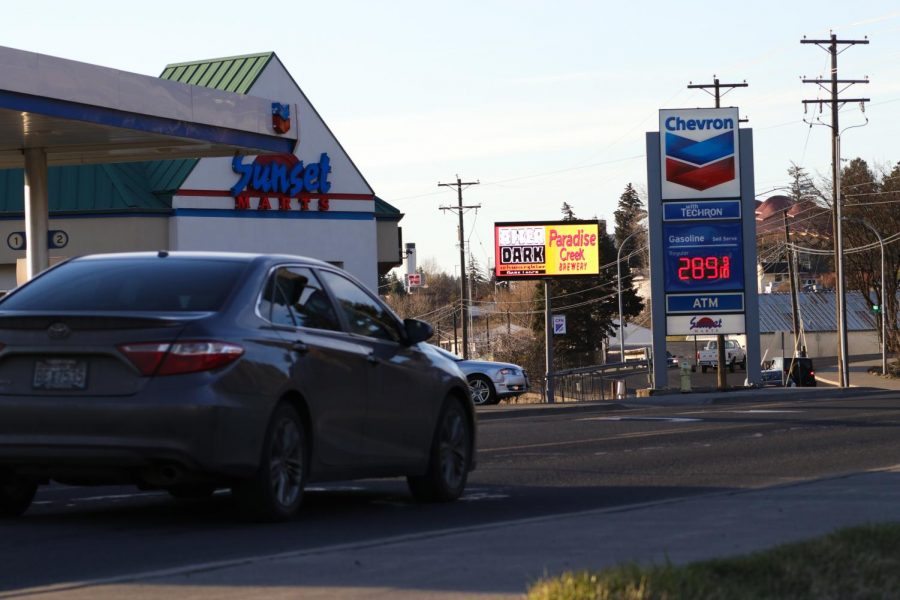Gas tax bill too costly for minor effects
Bill meant to affect climate change creates too small change to warrant increase in gas tax, more expansive plan needed
JACK LEWIS-CLARKE | THE DAILY EVERGREEN
Climate change is undeniably one of the most pressing concerns today, but that doesn’t mean we should jump at every opportunity to try to solve it. House Bill 1110 doesn’t effectively address this issue and does so at far too high of a price tag.
April 3, 2019
Climate change solutions must reduce financial strain. Only increasing the tax on carbon fuels and raising gas prices puts too much of the burden on those who need to drive every day.
People will still drive the same amount, they’ll just have to pay more to do it. The new gas tax would do virtually nothing to reduce carbon emissions and relies too much on the commuter without offering adequate forms of relief.
As part of a clean fuels program to combat climate change, the Washington House of Representatives passed House Bill 1110. Now being debated in the Senate, this bill requires a rise in gas tax of an additional 17 cents to meet its goal of reducing carbon emissions in Washington state by 10 percent, according to a testimony in the House Bill Report.
If that 10 percent decline was national, this would have a huge impact on the effort against climate change. But as this projected decline will only take place in Washington, it would only put us in the lower 50 percent of state carbon emitters, as Washington placed 25th-highest in 2016, according to a report by the U.S. Energy Information Administration.
A strong advocate for this bill, Gov. Jay Inslee came to the Pullman campus to discuss methods for cleaner energy use in the state of Washington. However, he failed to address the issues many have with it.
Most people who were able to ask questions of the governor were, for good reason, concerned about the economic impacts these changes would have.
“Low-income communities are often the first affected and the most impacted by climate change,” Inslee said during his talk on campus. “But we also want to not damage these communities financially.”
Inslee acknowledged that lower-income communities are the worst-affected by climate change and increased gas costs but did not provide a definite solution. He mentioned that tax breaks and low utility rates will offer a balance, but there’s no definite method or even an evident plan to actually treat these problems.
This shows that this bill implementation has moved too quickly and without a full plan in place. It’s irresponsible and negligent for it to pass without a plan to manage issues legislators know this bill will create.
This does little to ease anyone’s mind or address the fact that everyday citizens will front the cost for this new legislation. The lack of clarity is worrisome to WSU students, as many students here are already on a tight budget.
Still, many students are in support of this bill, but for the wrong reasons. Climate change is the greatest challenge we have to deal with as a generation, but that doesn’t mean we should take the first solution made available to us. Just because a bill is meant to combat climate change doesn’t mean it will.
The clean fuels program would lower carbon emissions, but only by a minuscule amount and with far too great a cost to Washington residents. If combating climate change is truly the goal and isn’t meant as just a tagline to get a new tax passed, legislators need to coordinate a larger plan incorporating carbon emissions on a national scale.
As WSU students, we should critically consider the impact of seemingly altruistic bills and consider whether the price we’d pay for their enactment is really worth supporting.








